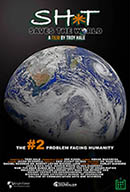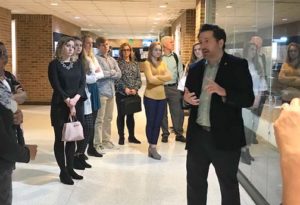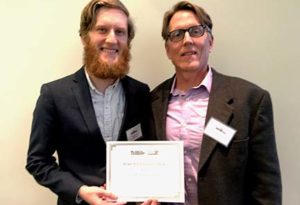
Documentary poster
A Knight Center funded documentary film, “Sh*t Saves the world”, is nominated for an Emmy Award from the National Academy of Television Arts and Sciences, Michigan Chapter.
The nomination is for the film trailer.
Director Troy Hale, Producer/Editor Zoe Kissel, and Producer Geri Alumit Zeldes will attend the award ceremony June 15th. The film is a humor and informational, look into impact of people our planet. The project brings to light subjects that are not often discussed… at least not at the dinner table. Adding an element of humor allows the film to have a wider audience interest, than a traditional environmental documentary.


